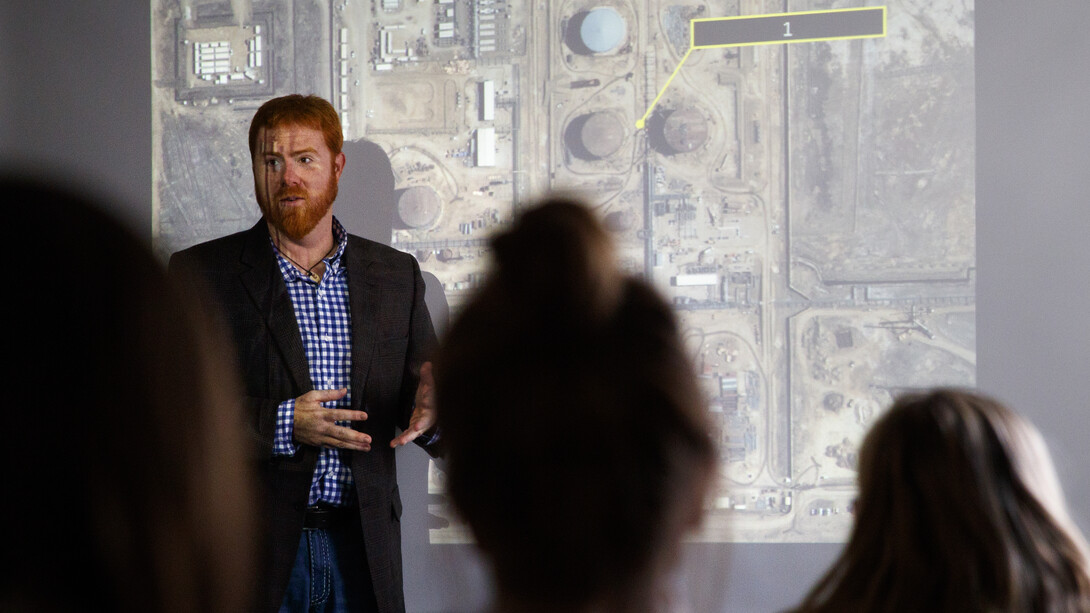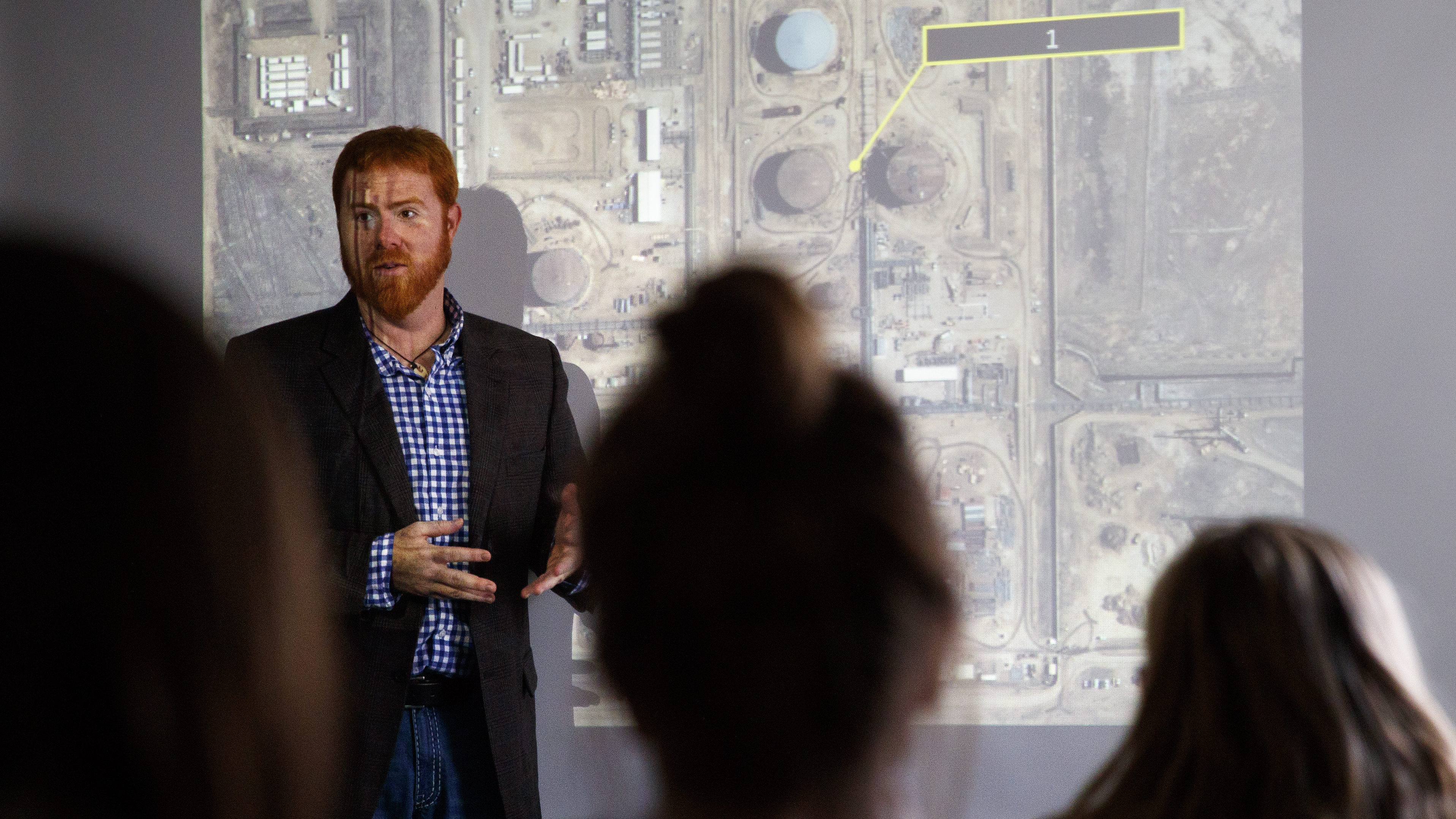
Students in Tyler White’s national security honors class study a satellite image of an ambiguous-looking building. They have unconfirmed reports that this is a nuclear enrichment facility in Iran. Their team’s mission is to sort through the conflicting information and to brief policymakers.
In this class, there is no answer key. The simulated intelligence exercise requires students to use teamwork, homework and critical thinking to develop their best judgment of what might be happening on the ground in Iran.
“It’s like a puzzle without all the pieces and some of the pieces don’t fit,” said Angelica Carlini, a junior marketing and management major from Grand Island who is one of 17 students enrolled in White’s class.
The class expands upon a highly regarded Washington, D.C., seminar for national security students developed by White, a political scientist who specializes in nuclear deterrence issues, and Marc Warburton, a former defense and intelligence contractor who is director of national security education programs at Nebraska.
Students learn the basics of spycraft; interviewing role players to pry human intelligence from them; monitoring radio, radar and telemetry for signals intelligence; learning to decode ciphers and find messages hidden in images; and analyzing geospatial intelligence gathered by satellites and drones.
“It’s a seminar that includes reading about American foreign policy in the Middle East and intelligence simulations in a task force environment centered on Iran,” White said. “It’s a made-up scenario – a giant spy novel.”
The class is part of a continuing program of national security education offered at the University of Nebraska-Lincoln. Although funding for the Great Plains National Security Education Consortium ended in 2014, Nebraska continues as an Intelligence Community Center of Academic Excellence and maintains close ties with Omaha-based U.S. Strategic Command, or STRATCOM, and its Deterrence and Assurance Academic Alliance. Other members include Georgetown, Stanford and Johns Hopkins universities.
In early November, Maj. Gen. Clinton E. Crosier, STRATCOM’s director of plans and policy, visited campus to review research proposals developed by undergraduate student members of the Great Plains National Security Education Community. Four teams of undergraduates are researching questions posed by the Deterrence and Assurance Academic Alliance. Their findings could be presented at an annual STRATCOM symposium in the spring and entered in a national writing competition for student and professional researchers. Officials from the National Security Agency, the Defense Intelligence Agency and the FBI also have visited campus this semester.
White’s class focuses on monitoring Iran’s compliance with the controversial 2015 agreement to lift economic sanctions against Iran in return for reductions in Iran’s nuclear stockpile and its uranium enrichment capabilities. President-elect Donald Trump has criticized the Iran deal.
His students were in kindergarten during the Sept. 11, 2001, terrorist attacks on New York City and Washington. Some, such as a supply chain management and global studies junior from Creston and a forensic science junior from Hastings, are interested in national security as a career. The students, whose names are omitted because of their career interest, are pursuing minors in national security and are members of the Great Plains National Security Education Community student group.
Other students take the course to meet general education or honors requirements. They said White’s class has given them insight into history, international relations and government decision-making.
“I didn’t know what I was getting into,” said Dalton Dey, a senior finance major from Gresham. “Before, I thought ‘Here’s a problem, there’s a clear solution, let’s go take care of it.’ But there’s hardly any black and white. We’re looking at a structure. Is it a nuclear testing facility or not? We’ve got four or five pictures and two pieces of wishy-washy supporting information. We still don’t know if it’s a nuclear testing structure.”
Kevin Vakilzadian is a senior biosystems engineering major from Lincoln whose parents immigrated from Iran. Though he visited Iran three times as a youngster, the class has given him new insights about what happened when the Shah was deposed and Ayatollah Khomeini took power in 1979.
Grace Stallworth, a junior psychology and sociology major from Lincoln, said the class has given her perspective on the decisions leading up to the Iraq War, including reports of weapons of mass destruction that didn’t pan out.
“I learned I’m not cut out for a national-security career,” she said. “There’s a lot on the line.”








